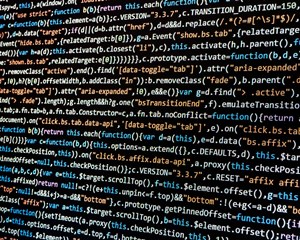The declining authority of statistics – and the experts who analyse them – is at the heart of the crisis that has become known as "post-truth" politics. And in this uncertain new world, attitudes towards quantitative expertise have become increasingly divided. From one perspective, grounding politics in statistics is elitist, undemocratic and oblivious to people's emotional investments in their community and nation. It is just one more way that privileged people in London, Washington DC or Brussels seek to impose their worldview on everybody else. From the opposite perspective, statistics are quite the opposite of elitist. They enable journalists, citizens and politicians to discuss society as a whole, not on the basis of anecdote, sentiment or prejudice, but in ways that can be validated. The alternative to quantitative expertise is less likely to be democracy than an unleashing of tabloid editors and demagogues to provide their own "truth" of what is going on across society.
統計——以及分析統計數據的專家——的權威不斷下降,是這場被稱為“后真相”政治的危機的核心。在這個不確定的新世界里,人們對定量專業知識的態度越來越分化。從某種角度看,以統計為基礎的政治是精英主義的,不民主的,無視人們對社區和國家的情感投資。這只是倫敦、華盛頓或布魯塞爾的特權人士將他們的世界觀強加給其他人的又一種方式。從相反的角度看,統計學與精英主義完全相反。它們使記者、公民和政治家能夠從整體上討論社會問題,不是基于奇聞軼事、情緒或偏見,而是以切實可行的方式。除了量化專業知識之外,民主更不可能是民主,而是釋放小報編輯和煽動者,提供他們自己的“真相”來了解整個社會正在發生的事情。

Is there a way out of this polarisation? Must we simply choose between a politics of facts and one of emotions, or is there another way of looking at this situation? One way is to view statistics through the lens of their history. We need to try and see them for what they are: neither unquestionable truths nor elite conspiracies, but rather as tools designed to simplify the job of government, for better or worse. Viewed historically, we can see what a crucial role statistics have played in our understanding of nation states and their progress. This raises the alarming question of how – if at all – we will continue to have common ideas of society and collective progress, should statistics fall by the wayside.
有辦法擺脫這種兩極分化嗎?我們必須簡單地在事實政治和情感政治之間做出選擇,還是有別的方法來看待這種情況?一種方法是通過歷史的鏡頭來看待統計數據。我們需要試著看清它們到底是什么:既不是不容置疑的事實,也不是精英的陰謀,而是旨在簡化政府工作的工具,不管結果是好是壞。從歷史上看,我們可以看到統計數據在我們理解民族國家及其發展過程中發揮了多么重要的作用。這就出現了一個令人震驚的問題:如果統計數據被拋在一邊,我們如何(如果有的話)繼續對社會和集體進步有共同的看法。











